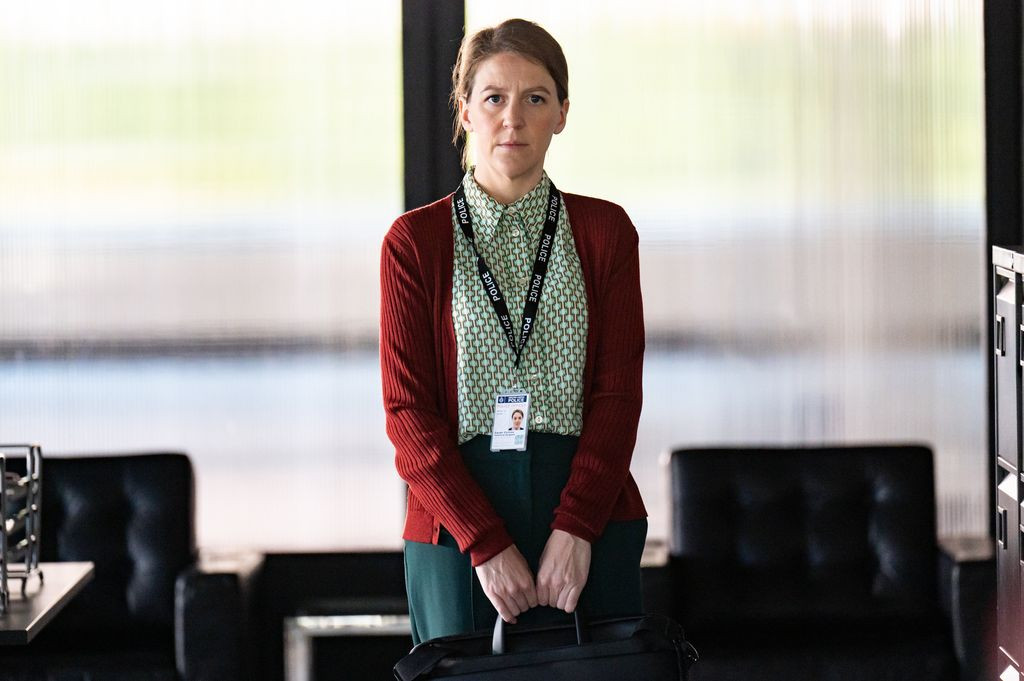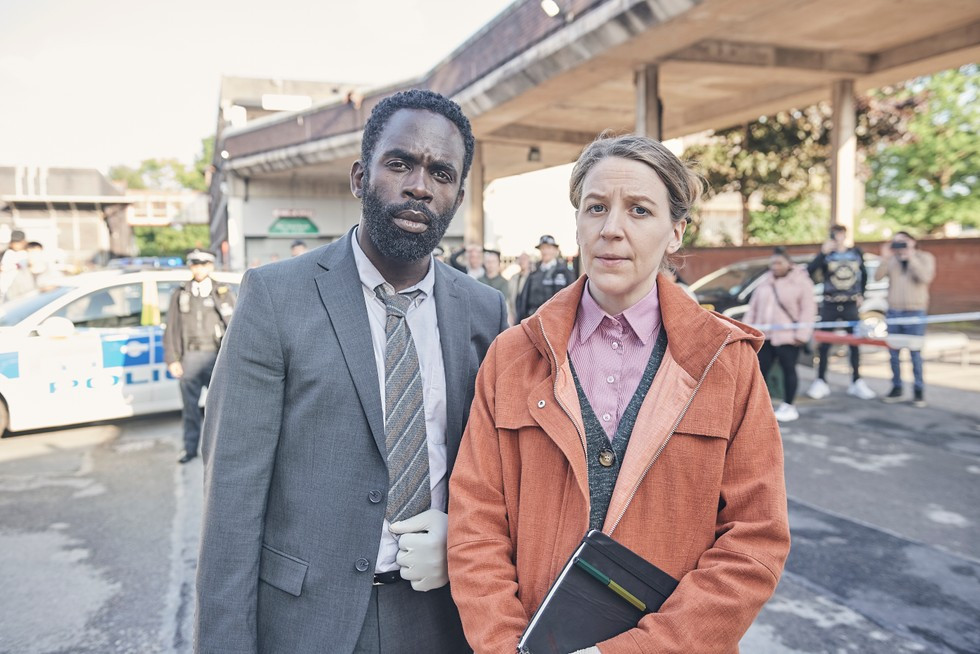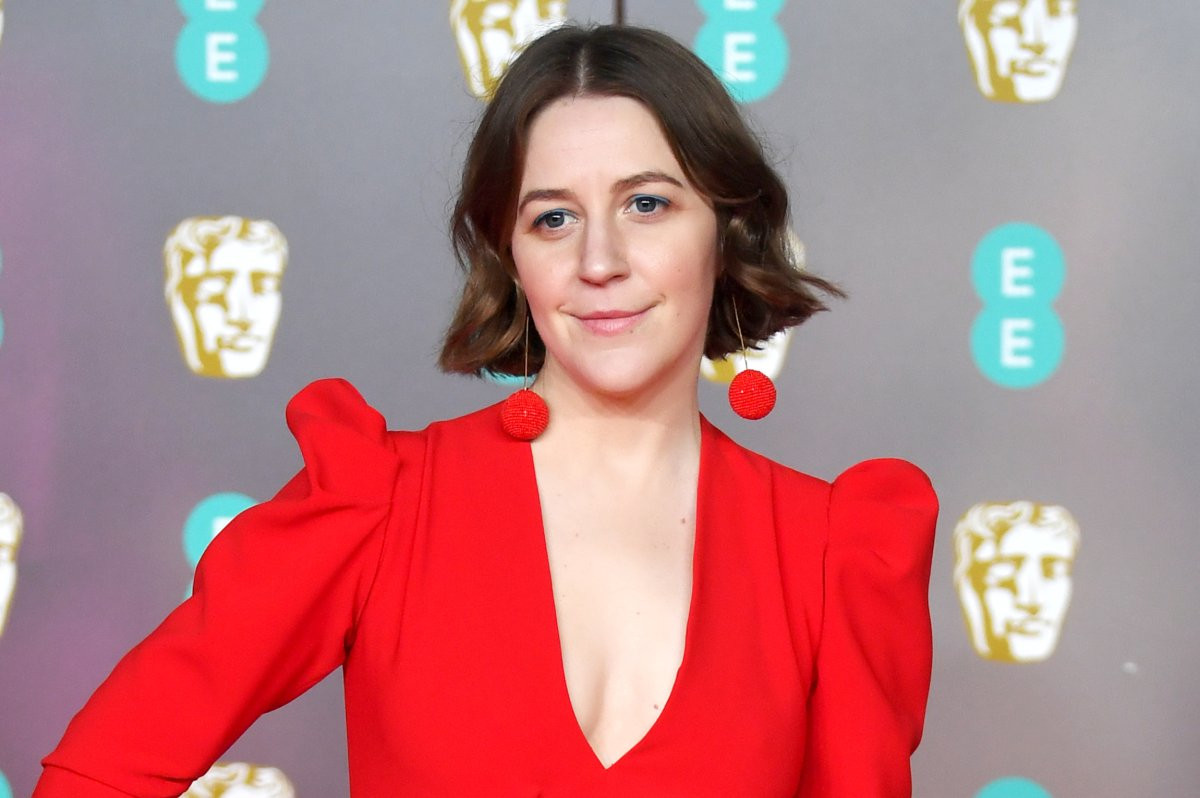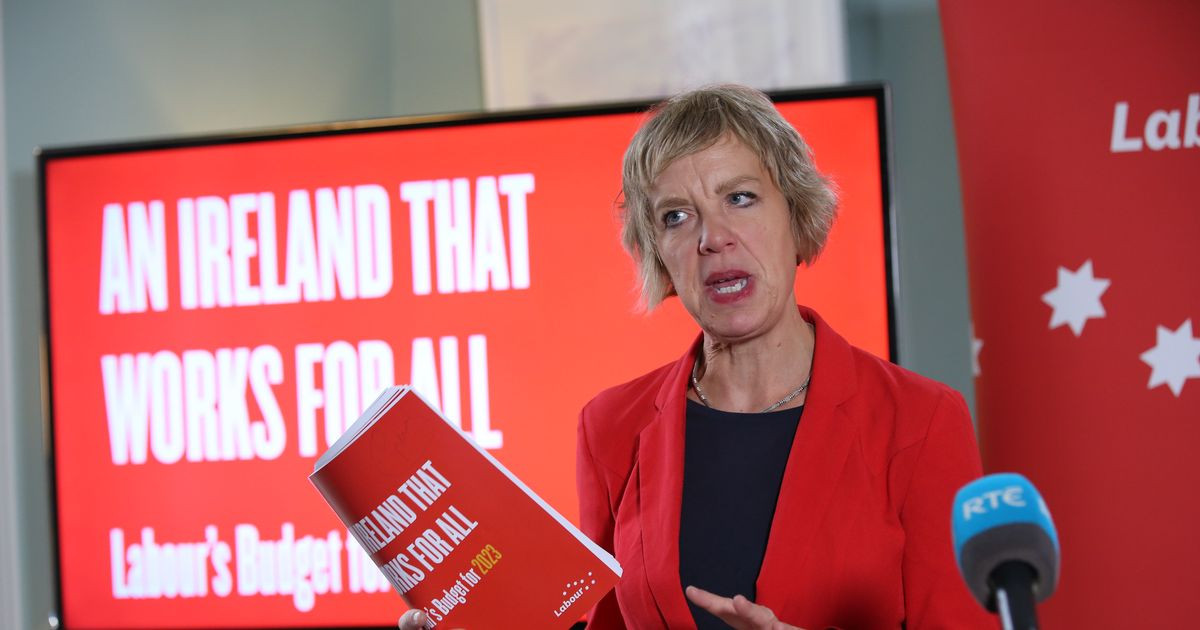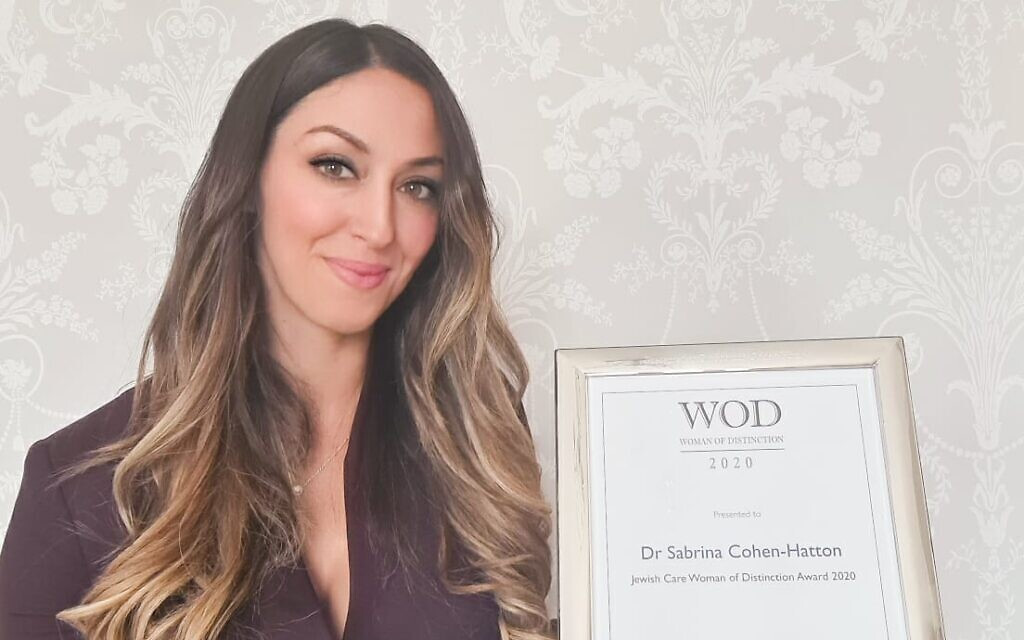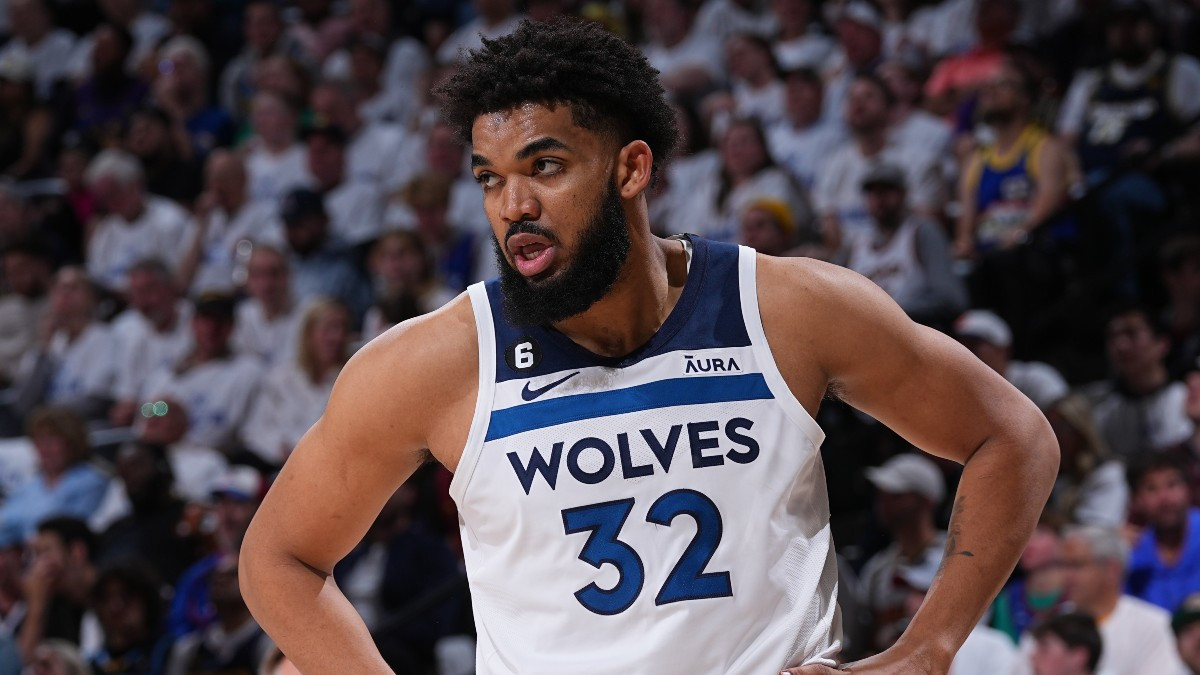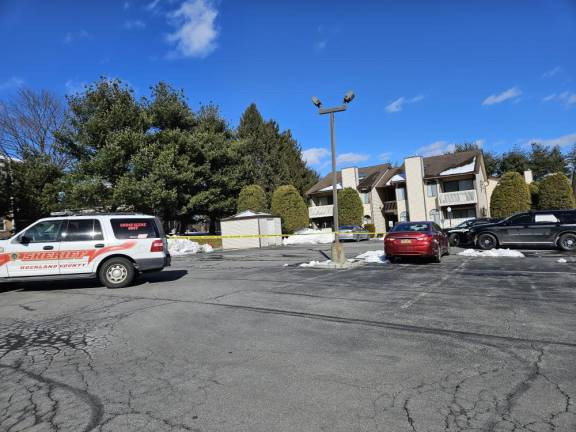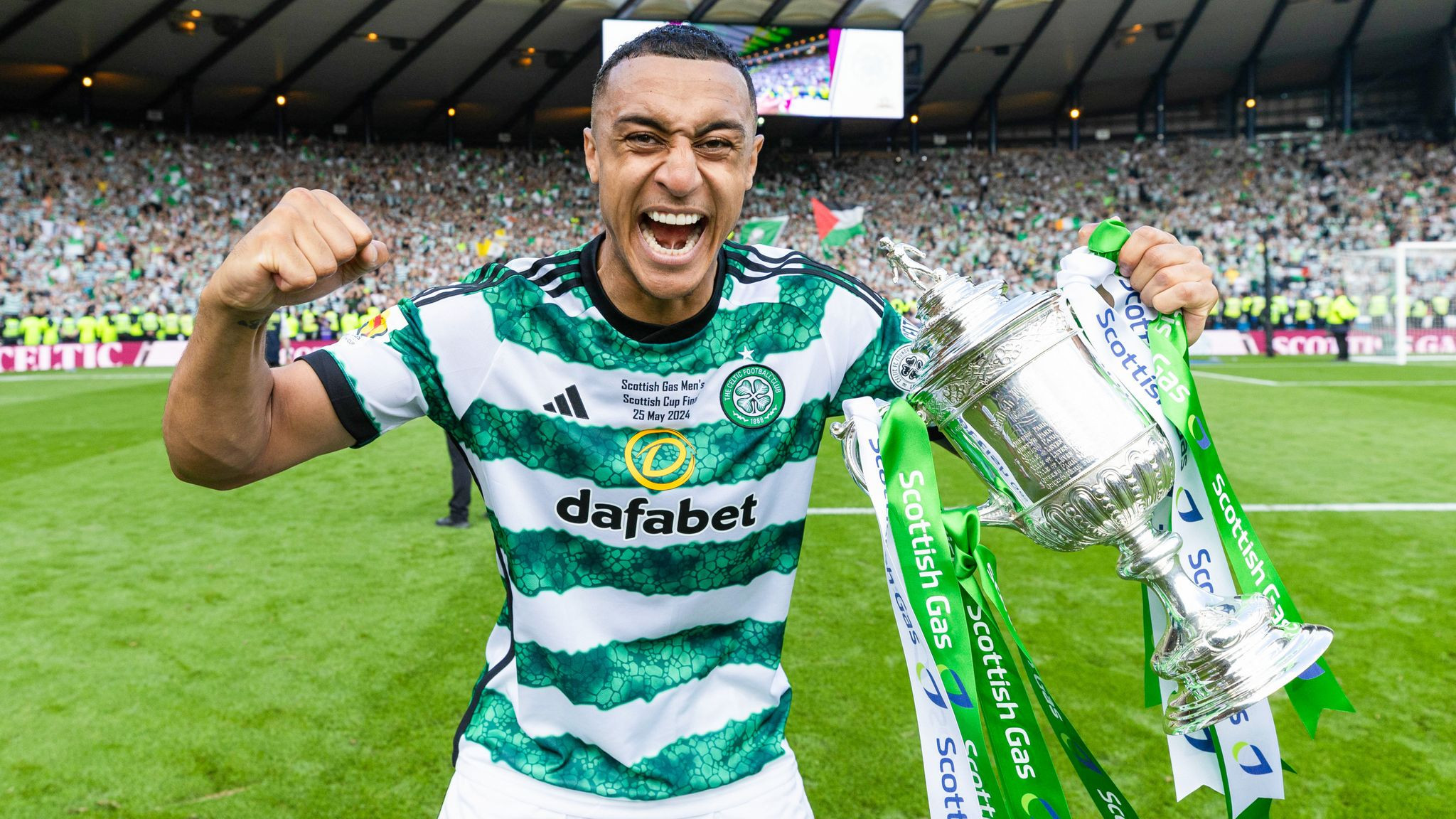Gemma Whelan is back on our screens in the third season of ITV's hit crime drama, The Tower. The actress, who plays DS Sarah Collins in the police series, is well-known thanks to her TV roles in Game of Thrones, Killing Eve and Gentleman Jack. But did you know that her husband is also a famous face? Read more about her family life below…
Gemma Whelan returns to the ITV drama The Tower as Detective Sergeant Sarah Collins and here is all you need to know about her life off-screen.
Gemma Whelan is back for a third season of ITV's The Tower and viewers will also recognise her as Yara Greyjoy in Game of Thrones. The actress started her career as a stand-up comedian, performing as the character Chastity Butterworth.
The 43-year-old actress went on to star in popular shows like The End of the F*ing World, Gentleman Jack and DI Ray. She was born in Leeds and grew up in the Midlands.
The star had a difficult time as a teenager as she battled anorexia and ended up in hospital. She said her greatest achievement was recovering from the eating disorder, explaining the experience had shaped her approach to many other things.
Speaking to The Times, Gemma said: "It's part of my life. If it can help one or two people maybe feel it’s not hopeless and you can get better, then yeah, I’ll share it.
"I am not so private I wouldn’t talk about that. Because it really shaped me. It formed so much of my life and the way I live my life and my personality and my approach to things."
As for her personal life, she now lives in London with her husband the comedian and actor Gerry Howell.
In 2010 he won Best Individual Comedy Show Award at the Buxton Fringe Festival for his one-man comedy-drama The Fantastic Reality of Frederick Goodge.
They have two children and back in 2018, she opened up about how her daughter Frances was six months old when she was filming various shows.
She told the Belfast Telegraph: "It was fine. It sounds much scarier than it actually is, popping off to feed your baby now and again, as long as everyone's willing to allow that, which invariably they have been.
"I think Claire Foy did a lot for it (working mums on set), Sally Phillips, who was on this film, she took her babies to work with her, a lot of mums do. So the more we do it, the more normal it can become."
Her son Freddie was born in the summer of 2021. In 2023 she opened up about juggling acting with being a mum of two.
Speaking to OK!, she admitted she hasn't read the Kate London books on which The Tower is based on as she's been too busy with her young children.
She said: "I decided I've got two children, a very young baby particularly, and I thought my priority has to be to learn my lines.
"I think [writer Patrick Harbinson] has written such a clear version of our version, that I like to sort of play that and try not to muddy – it's my excuse for not reading the books and having a tiny baby!"
Sarah’s Journey in The Tower
A true chameleon, Whelan has taken on roles that have pushed her to the very limit. Whether on the stage or screen, she doesn’t shy away from a challenge, finding parts that draw her into their world. From the hardened Yara Greyjoy of the Ironborn in Game of Thrones, sweet and innocent Kate in Upstart Crow, or most recently reprising her role as DS Sarah Collins in The Tower, she gives it her everything and then some. With truly captivating and memorable performances that leave you wondering just where she’s going to pop up next on your screen.
As we sit down to talk about series three of ITV’s police procedural, The Tower, we delve into when she first got that creative itch. She reminisces about a family vacation to Portugal where the camcorder was busted out to capture every moment of the holiday. Her brother, the adrenaline junkie, and Gemma, the performer, soaked up the attention. When she looks back at those home videos, it isn’t any surprise she’s ended up on this career path. Everything has just happened to fall perfectly into place.
Finding Connection in a Script
Your filmography spans so many genres, from Game of Thrones, The Tower, Upstart Crow, and Moorside, so when you’re reading through a script, what are you looking for? What are you looking to connect to?
Some differences in character, in terms of what I might have played before. I guess good writing is immediate on the page, isn’t it? So good writing, well-written characters, realistic women, believability and heart and truth and connection. All of the typical human qualities one would look for in life, I suppose. And a love immediately for the character, whether they are someone like Karen Matthews or Yara Greyjoy, or Kate from Upstart Crow. There has to be some connection or empathy or understanding or interest in a facet of their personality.
That’s not to say I like Karen Matthews, but to understand who they are or where they’re coming from, or what their story might be, rather than just being blanketed about things. So, it can be a variety of things. But it’s obviously a bonus if you absolutely adore the script as well. I’m very grateful for my very good agent. And I feel like he’s very classy and helps me make really classy choices. I have a lot to thank him for as well.
On Sarah’s Evolution in The Tower
We’re on series three of The Tower now. How would you describe Sarah’s journey from the beginning to now? What do you think she’s learned about herself and the people around her?
I think she’s learned a lot. I mean, she was always quite sure of herself in terms of her job, in terms of the work that she does. But I think series three calls into question her rigidity, her moral rigidity. Her north and south are shaken up a little bit. Her compass is challenged, in this one, which is really interesting to see. The challenge of yes, there’s right and wrong and black and white. But there is a middle ground where sometimes shit happens. And we have to make the decision based on what we’ve got. And things can’t always be perfect and cut and dry.
So, I think she’s really having to move a bit in this series or at least look at herself in a different way. I think she’s more settled in her home life. And she’s just as grounded as ever. But she’s also coming up against challenges at work in terms of her colleagues and how she butts up against them or asks them to help or not. She’s having to revise a little bit, maybe, or reconsider certain things about her work, home life and her approach to work. And, you know, an admiration of colleagues who do things differently. Perhaps, you know, there’s a possible softening there, but let’s see.
The Enduring Appeal of Police Procedurals
During another interview, you said the lines between the script and the book were beginning to blur.And you had to stop reading the book. Have you finished it since? And did it add anything to your characterization?
I have not finished it since. I decided not to, because I’d gleaned enough from the director who obviously had read it, and I wanted to treat the scripts as something entirely separate. Obviously, I didn’t want to read it and in hindsight go, ‘Oh, fuck, I should have done that’. I thought it was best to let sleeping dogs lie. I might actually, if we’re lucky enough to get a series four. But I think maybe I’m just a bit scared that I’ve been doing it wrong. So it’s best not to find out now. You know what I mean? I don’t think there’s any right or wrong.
Did you touch-base with Kate London at all?
I spoke to her in detail and at length on series one. Then she was on set for series two and three. So she was around a lot she was very accessible.
I bet that was a great help! In your opinion, what is it about the police procedural format that keeps bringing people back for more? There are so many on television, but people keep coming back to it.
That’s a good question. It’s such a good question, but I don’t know [laughter]. The answer is in there somewhere. Why are we so compelled by these procedurals? From Columbo and Murder, She Wrote, Midsomer Murders and The Tower and Line of Duty. We just cannot get enough of all of that. I don’t know what it is. It must be a fixation of how human beings behave. There’s sort of the intrigue of crime. And I guess everyone loves a puzzle, don’t they? Everyone loves a puzzle. Everyone loves to do a riddle or a mystery, or everyone loves to solve things or work things out. But humans innately want to solve things, don’t they?
In whatever capacity, we like solving things or working things out or how to do things. So I think that it’s an area of our lives that we never really come across. Hopefully, if we’re good people, we don’t come across those worlds very often. So, it’s always a magical world, isn’t it? In terms of the police world and the interview room and the machinations and the psychologies of criminals and the criminal mindset. It’s so compelling. And yeah, I don’t know what it is. And I find it an impossible question to answer, even though it’s such a good question. And if you’ve got an answer, tell me.
I don’t know, I think you answered that pretty well, but I’ll ask this instead: Do you have a favorite police procedural?
I mean, I flippin’ love Columbo.
Oh, yeah! I love Columbo, too!
I love Columbo so much. That was my page one. I could watch him all day. Isn’t it mad? Someone in the formatting world said, ‘Right, we’re going to know who did it from the outset. And then we’re going to watch him solve it. What a great formula.
We’re working it out alongside him.
We’re part of him. He’s holding our hand. And it’s just so good.
Agreed. Turning back to The Tower, what advice would you give to Sarah going into season three?
What advice would I give? Watch your back [laughs]. Watch your back. Watch your front, watch your back. Trust no one. But also loosen up a bit. Watch your back and loosen up.
From Screen to Stage
You’re no stranger to the stage. You wrapped Underdog: The Other Other Brontë, not too long ago. What creative itch does theatre scratch for you?
The immediacy of an audience and the physical challenge. I loved the script the moment I read it. I didn’t leave the stage apart from 20 seconds in the first half and then the interval. I was on stage the whole time. I think physical challenge and mental challenge of being there and present and on and all those lines and all the emotions, you know, it was funny and it was tragic. It was everything in between. I had to cry every night and make people laugh and find levity. It was the brilliant, wonderful challenge of doing that every night. To stretch all those corners of myself is so magic for me. And to feel the adrenaline and the nerves and play with my fellow actors who I was always in awe of and the spirit of it and the team of it and the magic of us all working together. There were about 50 people making this moment happen, like rotating the stage and doing the lights and the sounds and like the costumes and the quick changes backstage. What an effort this is. And these people are sitting here in silence watching it. It’s such a magic space.
I’ve always loved the theatre, the backstage, the smell of it, the reverence with which I enter a theatre, telling a story all in one go. Finding new things every night and being able to do it again and again and again. You can do it again and again on TV, but you tell the story completely out of sequence. And it’s not a full journey which is very enjoyable for its own reasons. I think, you know, an audience reaction, moving people, bringing people along for the ride, knowing that they’re with you when it’s pin drop silence for a minute, and then a sudden laugh – everyone’s listening. Just the collectiveness of a theatrical experience is so magical, whether in the audience or on the stage. It’s high, high art for me, when I’m on stage. I’m not calling myself someone who does high art, by the way [laughter]. I just think the theatre is high art. “Gemma Whelan thinks she’s high art.”
Let me just write that down real quick.
Oh, don’t! [laughs]
Do you find yourself gravitating toward screen or stage more?
I mean, the short answer is whatever comes along that I love, I guess. I love doing theatre. Once a year is lovely. When Underdog: The Other Other Brontë came along, I was like, I have to do this. I wrote to the casting director immediately saying, I love this. I love this so much. How can I do this? So yeah, if I have a reaction like that. I think it’s magical. I like to have a mixture, a mixture of both, because theatre obviously is incredibly tiring. It’s night after night after night after night. And being able to give a performance as fresh as the first one on the last night is wonderful fun.
But, you know, it takes its toll on family for eight weeks, you’re not doing bedtimes and you’re leaving at tea time. Someone’s got to pick up the slack and it’s all fine. It’s all planned for, but it’s just that, you know, you can’t do theatre for more than a couple of months and keep it up. I think there has to be a healthy balance.
The Power of Storytelling
Circling back, The Tower obviously deals with very heavy subject matter. How do you kind of reconcile that as an actor? How do you shed that once you’re done with your work day?
I’ve never had a problem with leaving it at work. I would work hard, and knew what I had to do for the day and then I would go home and be relieved it was done. Relieved that I felt like I’d done an OK job or that I’d done what I really set out to achieve that day. Or just be angry with myself that I hadn’t managed to quite get what I wanted from the day from myself. That’s what it’s all about.
But often I’ll go home feeling like, yeah, I think that was OK or I should have done that better. But I don’t really take home the kind of the agony of a character or the perturbations of somebody. I can detach quite quickly from that, I think.
That’s incredible. I’ve spoken to actors and, you know, the process is different for everyone. They have to decompress, journal, and do anything else to get rid of that extra energy.
I think often that happens in like taking off the makeup, in the driving home and stuff. Then I don’t feel like I’m consciously decompressing. I feel like it naturally happens if it needs to. But also, I feel like it’s such a privilege to be telling these stories. The honour and the privilege of telling really difficult or important stories. I serve the writing and I serve the character. It’s important to tell it really well and try and do your best. But I don’t take any agony home.
I think doing the play, though, recently, I realized after eight weeks of doing it nationally, we had a week off before we went up north and I hadn’t realized just how emotionally draining it had been. I just get on with things and only afterward sometimes, I’m like, ‘oh, that was quite tough, wasn’t it?’
The Early Inspiration
Pivoting away from acting for a second, what were the movie shows and media that shaped you? How did you get your start in acting?
Well, from early on, I wanted a ballet kit so I could do ballet and tap dance and always be performing. My mum and dad used to have a camcorder, a little video camera that we took on holiday and my brother is an adrenaline junkie and I am a performer. But when we were, five or six on holiday in Portugal, my mum and dad had the camera on us, all I was doing was performing to the camera and all he was doing was, like, spider-manning underneath the bridge behind me. It’s telling from early, early on that was who we were. And my parents never stopped us. They wanted us to get an education, and they made sure that happened, but they never said, you can’t, or you shouldn’t or you won’t. My brother’s a ship’s captain. He’s a captain on a ship on the west coast of Canada and I’m an actor. And they never said that it wasn’t possible. I think they wanted contingency.
They said, to get an education. My mum said, you love yoga, so why don’t you train as a yoga teacher so you’ve always got something to fall back on? She helped us make sensible decisions. In terms of movies and shows and stuff, I used to watch Mork & Mindy and I Love Lucy and Charlie Chaplin and Columbo and Murder, She Wrote, all these things, which I suppose now on reflection is just like, I love comedy and I love detective dramas and here I am having done both.
I guess I was subconsciously feeding myself from an early age, all of these wonderful performances to get inspired by. It was kind of a ritual in the house. Every Saturday night, we’d sit down with Fish and Chips and watch a Bond movie. We’d go to the video shop and we’d rent a video out and we’d rent a Bond and as a family, we’d sit down and watch a movie every Saturday night.
Every Sunday night, we’d watch something called The Darling Buds of May. I don’t know if you’re familiar with that, but TV was quite a reverential thing in our household. We watch it together and we enjoy it together.
I agree. It’s something very similar in this household, my mum is English, so it was All Creatures Great and Small, Keeping Up Appearances and, Are You Being Served? So I grew up watching with an appreciation for those shows and it was something we could do together after a long week of work and school. It’s just nice to spend that time with your family.
I remember it as good times. Often as we’re told now, I completely agree with the fact that screens are no good for children, but if they want to watch TV, let’s get inspired and watch something good on TV. TV did us no harm in the 80s. It’s inspiring if it’s done correctly. I just don’t want my kids to be in a room on an iPad all day, but they can watch the TV for an hour. It’s all in how we consume it.
The Lessons Learned
And lastly, what has acting taught you about yourself?
That’s a nice question. There’s nothing I can’t do, I think. Not to be scared of something if it requires a lot from you. That, I think what I’ve learned is I’ll see something on the page, I’m like, oh my God, how am I going to do that? And then it comes the day, and I’ve done it. And I’ve done it brilliantly, but I’ve done a version I’m happy with. You can do this. You’re capable. Like in the national show I’ve just done, as I had said, it was quite an emotional season at the end. And because of the words, not because of me, but because of the words, every day I was so just moved to tears.
It was necessary to cry at that point. And every day for eight weeks, I was able to cry at that point. And leading up to that, oh my God, how am I ever going to reach that acme of emotion every day? How am I going to do that? I never want my answers to sound egotistical, but like if you connect enough and you enjoy it enough and you want to communicate with an audience enough, you can do it. Don’t be scared, I suppose is what I would say. Don’t be scared of a challenge.
What a lovely note to end on. Gemma, thank you so much for your time today.
So lovely to speak to you today all the best.
Series three of The Tower is on ITV1 and ITVX from 2nd to 5th September
Follow Gemma Whelan @GemWhelan
Interview Dana Reboe
Photography David Reiss




